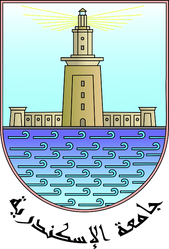As with many people from ancient times there is unclarity in detail. Clement was born around one hundred and fifty AD to pagan parents either in Athens or Alexandria and he died sometime shortly after two hundred and fifteen. In early youth he rejected his parents' paganism and was baptized a Christian. Sometime in his younger years he set out on an educational journey to broaden his mind. and toured the region around the Eastern Mediterranean, which comprised Greece, Anatolia and Egypt. The tour ended in Alexandria, which suggests that this city was his native land.
During the journey he encountered educated men of various cultures. Already, Clement was well versed in the philosophy of Plato, who believed believed that the path to perfection would require more than one lifetime. and this might have had an impact on his thinking, for he believed in reincarnation, which was a belief common in Platonic circles.He also had the opportunity to meet pagan thinkers, who may have been other Platonists and/or Stoic and Epicurean philosophers and develop his thought. Moreover, he encountered Jewish scholars and discuss religious and philosophical matters with them. One such thinker from among the Christian thinkers that he met was possibly Tatian, author of an attempt to synthesize the four canonical gospels into one account called the Diatessaron. This was not accepted by the church as it was not a work with apostolic authority backing it up. Completing his intellectual journey he would have studied Gnostic thinkers. Gnosticism was a belief that salvation comes from metaphysical knowledge. It had some Christian like forms, but was ultimately rejected by the church.
Being rather well-schooled in Philosophy, a subject which played a significant role in his life, he took up a job tutoring this subject, and he believed that philosophy would play an important role in Christian thinking.
His first philosophical work, the Protrepticus, which means Exhortation, took a tilt at paganism, of whose tenets he had a deep knowledge from his pagan upbringing. He had a deep grasp of Greek and Egyptian mythology, and had a grasp of the teaching of what were known as the mystery religions, such as the cult of Mother Isis, which suggests that his pagan parents were adherents of these alternatives to the official religions practiced in Graeco-Roman culture. But he also had a powerful grasp of Christian Scripture, which he loved greatly. Aspects of his Egyptian background here filter into his thinking. For example, he accepted that Eve was made from Adam's body, but he suggested that Eve was formed when Adam ejaculated sperm in the night and it was blended into a water source, from which Eve grew. This has similarities to the Egyptian myth of creation by the God Ra. He addressed pagan beliefs by promoting a theory of the origins of religions, which he believed grew from the deification of forces of nature and great persons.
It is also believed that he was married, which distinguishes him from many other church fathers, who were celibate ascetics. Clement took a relatively relaxed view of the earthly joys that are available to us, believing that we can honour God by enjoying his creation. In this he is compatible with Scripture, which in one case, Jeremiah 31, says, "The young girl will rejoice and will dance." We do not know if he had any children.











 Darkness over the Earth the skies darkened when Jesus was crucified22 days ago
Darkness over the Earth the skies darkened when Jesus was crucified22 days ago
 TheThousand Year Gardenon 11/26/2025
TheThousand Year Gardenon 11/26/2025
 Women of the Gospelson 10/11/2025
Women of the Gospelson 10/11/2025
 Religious Gardenson 08/25/2025
Religious Gardenson 08/25/2025



Comments
There is almost nothing known of his family.
Thank you for your comment below, in answer to my previous observation and question.
The family that birthed him and the family that Clement of Alexandria created intrigue me.
Is there a tradition as to whether he interacted with his nuclear- and extended-birth family, with his collateral and direct relatives?
One might mull that as possible because of his mixing Adam birthing Eve in Egyptian-mythology fashion!
There are hints that He was married, but no details of the wife's identity are known
Thank you for your comment below, in answer to my previous observation and question.
Clement as married man intrigues me.
Is there any tradition as to whom he married and with what ceremony -- likeliest Christian, correct? -- they married?
Possibly, it cannot be ruled out.
Thank you for your comment below, in answer to my previous observation and question.
Your hope for a "document trove" in the Egyptian sands can be seconded by me.
What a natural, organic library those caves, rocks and sands can be!
But perhaps an anthropogenic competitor can be found in the Alexandria library of ancient times (and the British Museum ;-D of modern times). Might Clement of Alexandria's writings have found their way there among the Alexandria holdings?
I have nineteen the film that you mention. We do not know of what worlds Clement imagined. Let us hope that onebdaybwe findbabdocument trove in the sands of Egypt.
Thank you for your comment below, in answer to my previous observation and question.
The "worlds before Adam" intrigues me.
Perhaps such pre-Adam actions and beings informed the film version where Russell Crowe interpreted Noah.
Might you have seen that film? A bit unsettling in the pre-Adam actions and beings ;-{!
Sadly none. Many interesting literary works were lost or destroyed in the coĺlapse of the Roman Empire in the West.
The third sentence to your introduction advises us that "Origen, writing after Clement's death, says that he wrote stories about worlds before Adam, none of which have survived."
Is there any information, any tradition as to the actions and the beings in the "worlds before Adam"?